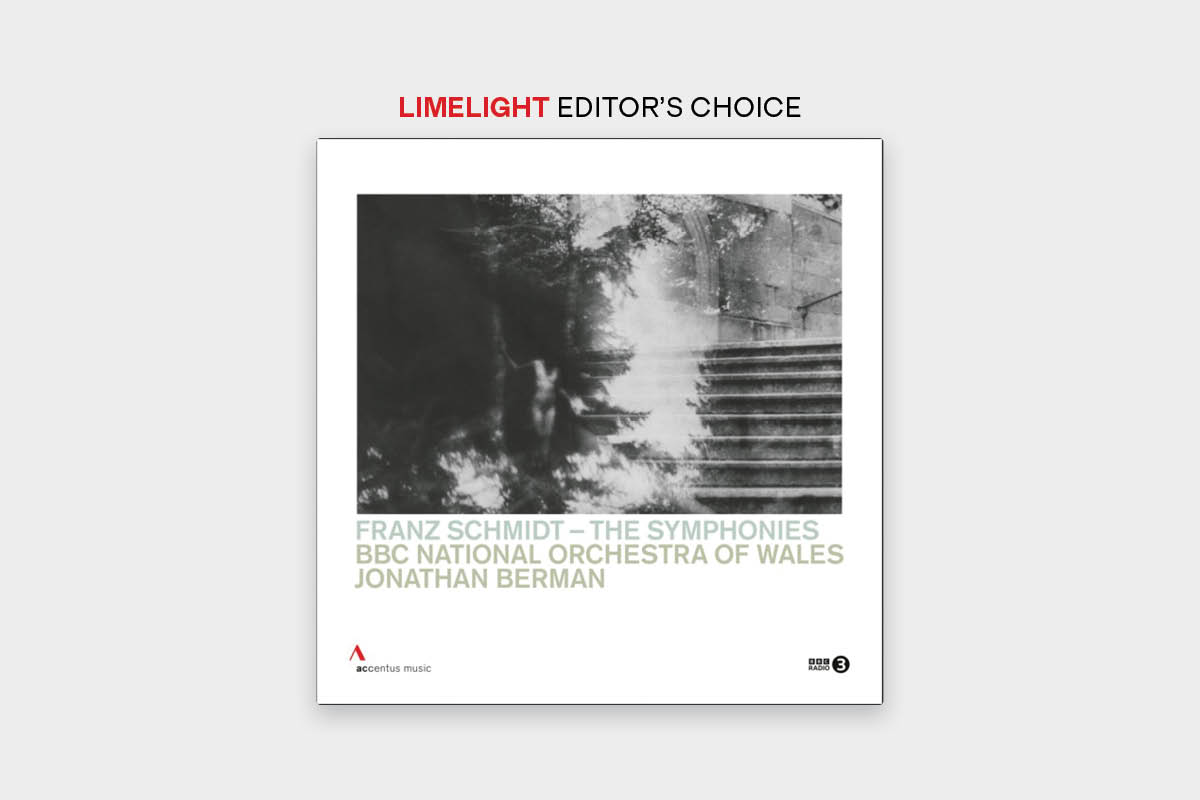Franz Schmidt (1874-1939), born in what is now Slovakia, began his musical career as a cellist with the Vienna State Opera Orchestra (later the Vienna Philharmonic), often playing under Gustav Mahler. He was also an accomplished pianist and taught both piano and cello at the Vienna Academy of Music and Performing Arts. His best-known work, at least in Germany, is the oratorio The Book with Seven Seals.

Schmidt’s four symphonies are generally considered to represent the last gasp of German high Romanticism. They cover his entire composing career, the First appearing in 1899 and the Fourth in 1934. They are traditional in harmony and orchestration, although the Fourth has an unusual structure: its four movements are played without a break, and are encompassed by a plaintive solo trumpet line, appearing out of the mists at the beginning and again at end.
Schimdt’s symphonies have been recorded as a complete set a few times, and there is a good reason for this, as they differ stylistically from each other. The First is a solid example of the late-Romantic symphony, with...










Comments
Log in to join the conversation.